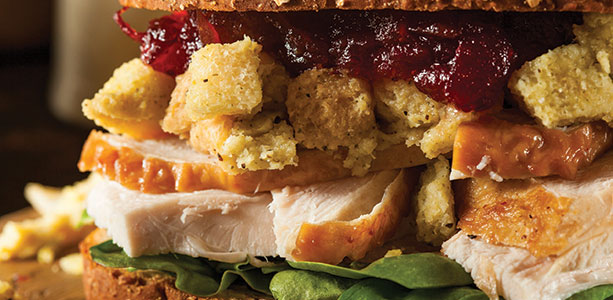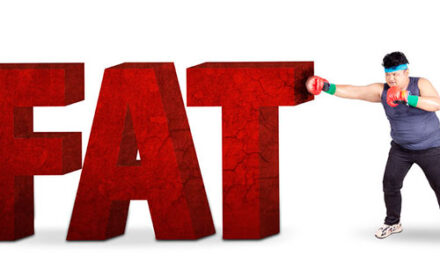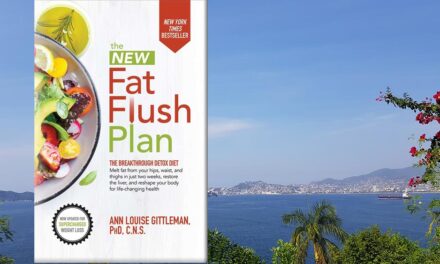The holiday season is not only a time for merriment and festivities, it’s also when most people are guilty of overindulging themselves with food. Delectable dishes are present and overflowing from each dinner table, which makes it next too impossible for people to resist the urge to eat them. It is a perfect example of a mind over matter scenario: the brain simply overrides the body’s warnings that it is already full, which allows a person to eat continuously.
Actually, the majority of the urges come in the form of pastries and pudding to name but a few. Of course, there are always those who overindulge in turkey and stuffing, but that is mostly because we don’t exactly eat turkey and stuffing every day. In other words, the mind wants what the body doesn’t get freely. Our brains are hardwired for novelty, so anytime something scarce or new comes along, we are all in!1
Aside from this, we are also hardwired to eat sweet foods when we are stressed and what time of the year stresses us more than the holiday’s—right? Our brain is always competing for the amino acid tryptophan, as tryptophan is essential to the manufacturing of the happy brain chemical, serotonin. Stress causes the body to use tryptophan for other—more important—things and the brain creates cravings for sweet foods to drive the serotonin levels up,2 but only temporarily.
The fact remains, holiday binges almost always have repercussions, which are usually felt after the festivities end. People often find that they have gained more pounds and unwanted body fat, which becomes more and more difficult to lose with each passing holiday season.
Unbeknownst to many people, it is very easy to alter one’s metabolic rate. A study showed that indulging yourself with unhealthy fatty foods for just five days can weaken your body’s ability to digest food effectively when you go back to your normal diet again,3 once again making it even harder to lose the extra fat and weight that you gained during the holidays. In addition, the occurrence of heart disease and hypertension spikes during this season4 due to the extra amount of fat, oil, sugar and grease that usually accompanies holiday dishes.
To celebrate the holidays guilt-free and maintain the positive vibes whole year round, it is best to eat clean and smart. The following tips will surely allow you to enjoy the holiday festivities and at the same time maintain a healthy diet:
- Be cautious when eating gluten-free dishes since they may actually do more harm than good.
Ingredients such as rice, millet and corn, which are usually used for gluten-free recipes, are actually full of quick-releasing carbohydrates that are usually converted into body fat quite easily5. They can also cause blood sugar levels to spike, which is a risk factor for cardiovascular diseases.6 Maintaining a low glycemic and low carb diet is your best ticket to maintaining health this season. - Fizzy drinks such as soda can make you feel bloated and gassy.
Not so attractive when you’re trying to make a good impression at the company Christmas party. Aside from making you swallow excess air, extra gas is produced when the bacteria in your digestive tract tries to break down sugars that these beverages contain. Instead of bloating yourself with these, it makes much more sense to limit yourself to regular water, sparkling mineral water with fresh lemon, hot tea, coffee, or unsweetened iced tea. These can also help you to maintain low insulin levels, which reduces cravings for sweets and allows your body to access fat for energy7. - Baked products are abundant during the holiday season.
However, instead of using baking flours to make your goodies, use coconut flour instead. This flour is not only low in carbohydrates but it is naturally laden with fiber and nutrients. In addition, coconuts have properties which have been shown to decrease the chances of diabetes and heart disease8. - For side dishes, replace high-glycemic corn with low-glycemic legumes such as green peas.
You may also opt for green vegetables, like broccoli, green beans or asparagus, which are not only low-glycemic but are also low in carbohydrates. Salads are also great dishes to prepare for this season as they have very low levels of carbohydrates and they can barely affect your blood sugar levels even at generous servings. - Another great way to prevent gaining extra fat during the holidays is by consuming green tea extract.
Green tea contains a compound that is called epigallocatechin gallate or EGCG for short, which can help the body burn fat9. Aside from increasing metabolism and fat excretion, EGCG can also interfere with the body’s ability to absorb carbohydrates and prevent development of fat cells10. To maximize its effects, green tea extract is best consumed in the same meal as the carbohydrates. - Another ingredient that can also block the body’s absorption of carbohydrates and starches is white kidney bean extract.
Carbohydrate digestion and absorption is associated with alpha amylase, an enzyme that is found in the intestines. This enzyme is blocked by phaseolamin, a compound found in white kidney bean extract which hinders it from functioning properly11. This makes you feel fuller for longer periods and reduces your food intake.
Eat right, live right. You should maintain this mantra at all times. Do not let the holiday mood get the better of you and control your eating habits. The extra fat gained during the holiday season is just too difficult to keep losing. This season, why not stay ahead of the curve.
References:
- Kahn BE, Wansink B. The influence of assortment structure on perceived variety and consumption quantities. Journal of Consumer Research. 2004, 30:519–33.
- Wurtman, R.J., et al. “Brain Serotonin, Carbohydrate-Craving, Obesity and Depression,” Adv Exp Med Biol, 398, 1996: 35-41.
- Davies, Madlen, et.al. (2015, April 13). Holiday Binge Really Does Hit Your Health: Just Five Days of Extra Fatty Food Affects Metabolism. Daily Mail
- Kam K. The Truth Behind More Holiday Heart Attacks: Why cardiac problems spike during the holidays and how to stay heart healthy. Web MD. Sept., 2011.
- Miller WC, et al. Dietary fat, sugar, and fiber predict body fat content. Journal of the American Dietetic Association. 1994;94:612–5
- Yanase M, et al. Insulin resistance and fasting hyperinsulinemia are risk factors for new cardiovascular events in patients with prior coronary artery disease and normal glucose tolerance. Circ J. 2004 Jan;68(1):47–52.
- Wiley, T.S. and B. Formby. Lights Out: Sleep, Sugar, and Survival, New York: Simon & Schuster, Inc., 2000.
- Nevin KG, Rajamohan T. Beneficial effects of virgin coconut oil on lipid parameters and in vitro LDL oxidation. Clinical Biochemistry 37,2004;830–835).
- Chen IJ, et al. Therapeutic effect of high-dose green tea extract on weight reduction: A randomized, double-blind, placebo-controlled clinical trial. Clin Nutr. 2015 May 29. pii: S0261-5614(15)00134-X. doi: 10.1016/j.clnu.2015.05.003. [Epub ahead of print.]
- Dulloo AG, et al. Efficacy of a green tea extract rich in catechin polyphenols and caffeine in increasing 24-h energy expenditure and fat oxidation in humans. Am J Clin Nutr. 1999 Dec;70(6):1040–5.
- Celleno L, et al. A Dietary Supplement Containing Standardized Phaseolus vulgaris Extract Influences Body Composition of Overweight Men and Women. International Journal of Medical Science. 2007; 4:45–52.











